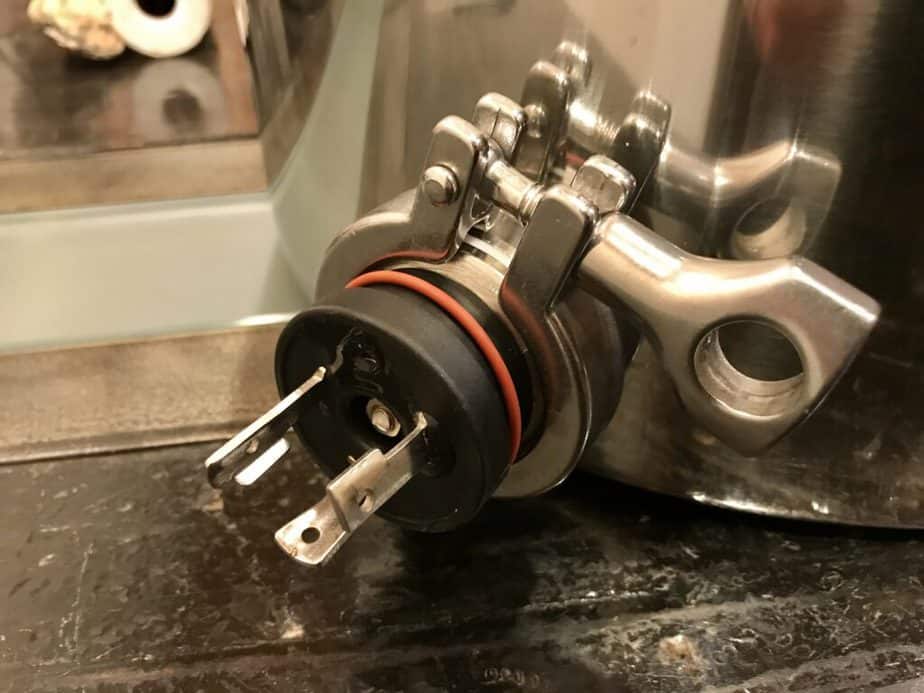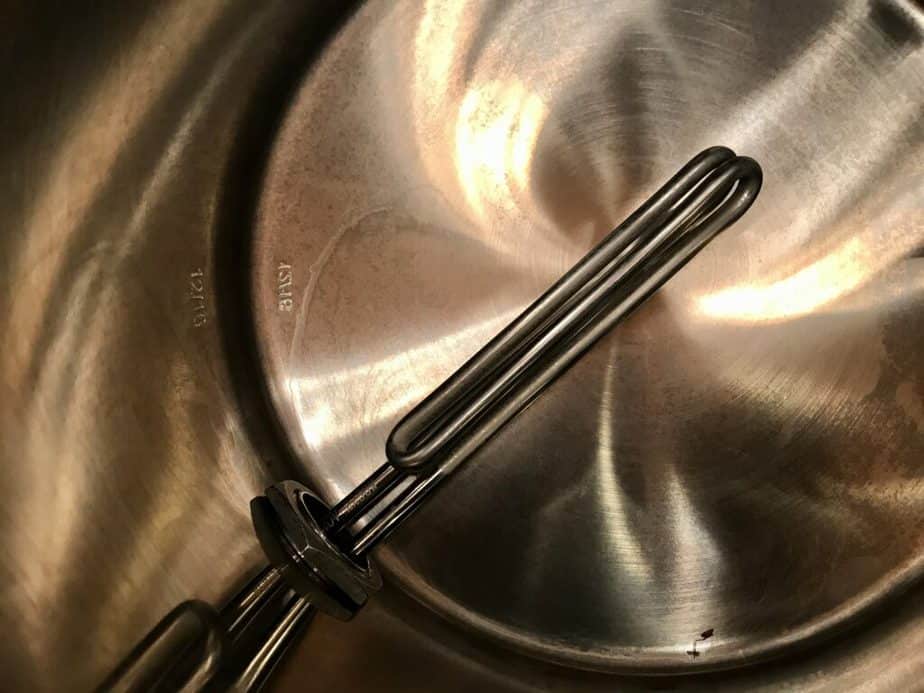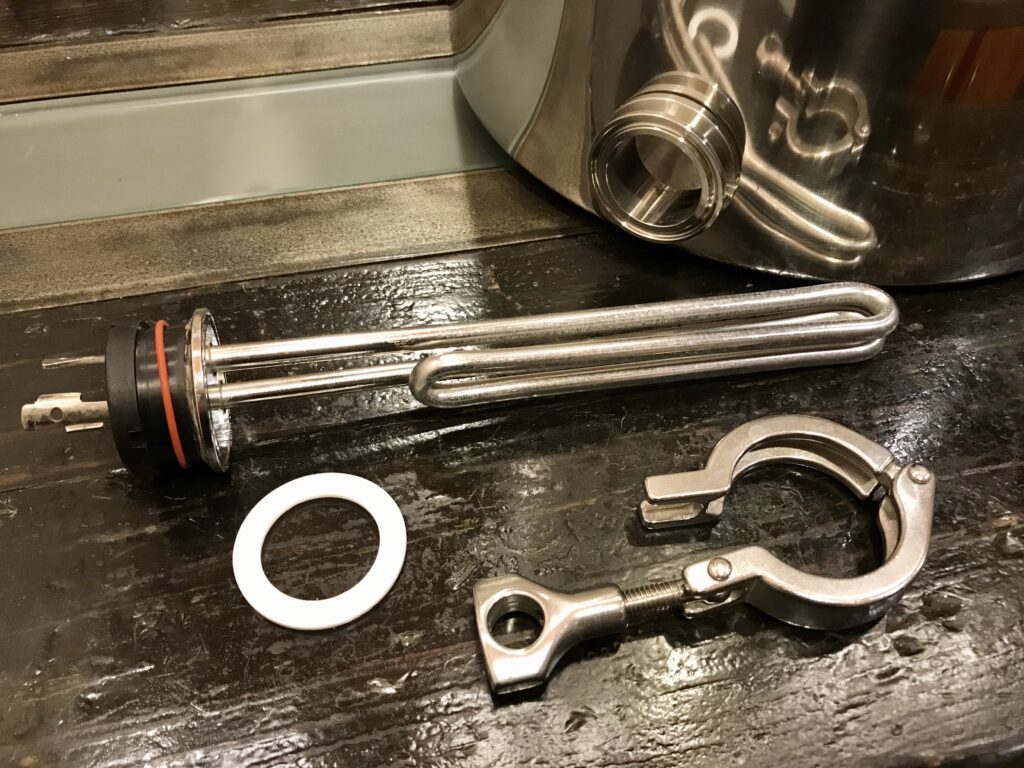In this post, we will cover the important factors in choosing a heating element. Which element we chose essentially impacts how long it will take to get to mash temperature, and subsequently how long it will take from mash temperature to boil.
Elements are rated according to the power they deliver. They typically range from 1500 Watts to 11000 Watts. Brewhardware.com has nice table describing the relative temperature rise times of various elements. With the owners permission, a copy of this table is shown here:

I am planning on brewing 5 gallon batches. The boil volume for a 5 gallon batch will be somewhere around 6 gallons. Extracting the 6 gallons volumes from the table:
| Heater Wattage | Circuit Req Volt/Amp | Volume Gallons | Minutes for 100F Rise | Minutes 70F to Boil |
|---|---|---|---|---|
| 1500 | 120/15 | 6 | 62 | 87 |
| 1650 | 120/15 | 6 | 56 | 80 |
| 2200 | 120/20 | 6 | 42 | 60 |
| 3300 | 120/15 x 2 | 6 | 28 | 40 |
| 5500 | 240/30 | 6 | 17 | 24 |
Let’s review the options.
| Power (W) | Total Wait Time (mins) | Pros | Cons |
|---|---|---|---|
| 1500 | 100 | Will run off standard house outlets | Very slow |
| 1650 | 90 | Will run off standard house outlets | Slow |
| 2200 | 68 | Will run off typical kitchen circuit, time is reasonable | Require ensuring circuit and breaker are 20A and replacing socket |
| 3300 | 45 | will run off 2 standard kitchen outlets, on separate circuit, fast | requires 2 elements to be fitted in a pot, more expensive, need to ensure outlets are on different circuit/breaker |
| 5500 | 27 | very fast | requires a 240V/30A circuit similar to those used to connect an electrical dryer |
The minimum amount of fiddling is provided with the 1650W (I’m not sure why anyone would go with 1500W). It will safely run off any house outlet with no modifications. The wait time is OK if you’re single and have nothing else to do that day.
A nice improvement can be obtained with the 2200W element. It requires replacing the outlet that is going to be used, and ensuring it is on a 20A circuit. [add link to 20A socket post]
The 2x1650W element is pretty fast, but outfitting a kettle with 2 elements, building a controller that will power 2 elements and making sure they are running off 2 separate circuits is just too much hassle for my taste.
Finally, the 5500W is clearly the Cadillac, but it will require a new circuit, like the one used by an electrical dryer, with all that entails. Eventually, i will be looking at this option as wait times under 30 minutes are very attractive when it comes to streamlining the whole operation. But for now, I will be settling on 2200 Watts. I will also replace an outside socket in the yard, so that i can take this whole operation outside on a nice summer day.
I will be going with this 2250W element from brewhardware.com. Note that I am choosing the TC (tri-clamp) integrated one so that it can be paired with the TC bulkhead port installed on the kettle, as described in the pot build post. We will also need a O-ring and a clamp for the TC connection
| Component | Link | Price |
|---|---|---|
| 2250W Element | Brewhardware | 62.99 |
| O-ring | Brewhardware | 2.00 |
| Clamp | Brewhardware | 7.00 |
| Total | 71.99 |



